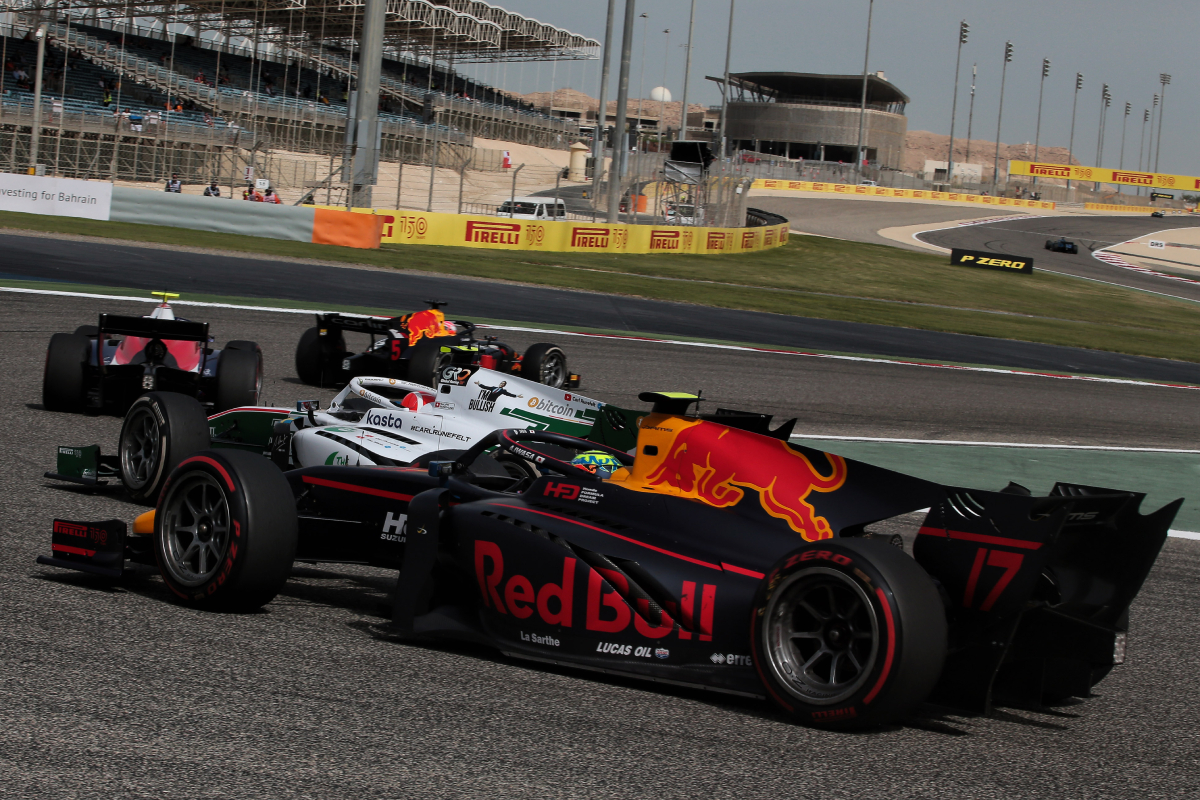

F1 feeder classes Formula 2 and Formula 3 will this weekend race with Advanced Sustainable Fuels in competition for the first time.
The two championships are in action as part of the support card at the Bahrain Grand Prix with all cars running 55 percent Advanced Sustainable Fuels.
It’s the first step for the categories towards a fully sustainable fuel and is as part of Formula 1’s push to become Net Carbon Zero by 2030.
“A lot of research and dedication has gone into the creation of the Advanced Sustainable Fuels that the F2 and F3 cars will be using this year, and we’re delighted to see it now in action on the racetrack,” explained F1 CEO Stefano Domenicali.
“The role of the F2 and F3 Championships has never been more important, as they continue to nurture the next generation of driver talent and inspire game-changing innovation.
“Sustainability is a huge focus for us at F1 as the business continues on the journey to being Net Zero Carbon by 2030, and the development of the Advanced Sustainable Fuels alongside our Global Partner Aramco, is a huge step that will see the sport and the wider automotive industry move towards a more sustainable future.”
The fuel has been developed by the sport’s partner, Aramco, which is also working on a similar for Formula 1, to be introduced in 2026.
A key goal of the project is to ensure the new fuel is ‘drop in’ with little to no modifications required to existing machinery.
That has already proved the case in the two junior formulae which completed pre-season testing using the fuel.
“Today is a very important day,” said Bruno Michel, CEO of Formula 2 and Formula 3.
“It marks an extraordinary breakthrough in motorsport with F2 and F3 becoming the first championships to introduce Advanced Sustainable Fuels on track.
“It’s another major step in making our sport more sustainable.
“We have been working very hard behind the scenes with our partner Aramco and we are proud to see all fifty-two cars now running successfully with these fuels.”
Plans are in place to see Formula 2 and Formula 3 move to fully sustainable fuel for 2027, one year after F1 but with a more ambitious solution.
The intent is to use carbon capture technology to extract it from the air in the fuel’s production.
It is an emerging technology that will take time to mature in order to produce the quantity of fuel required – F2 and F3 drivers logged over 8000 laps during pre-season testing last month.
This weekend’s Bahrain Grand Prix marks the 2023 season start for F1 and its two feeder classes.




















Discussion about this post